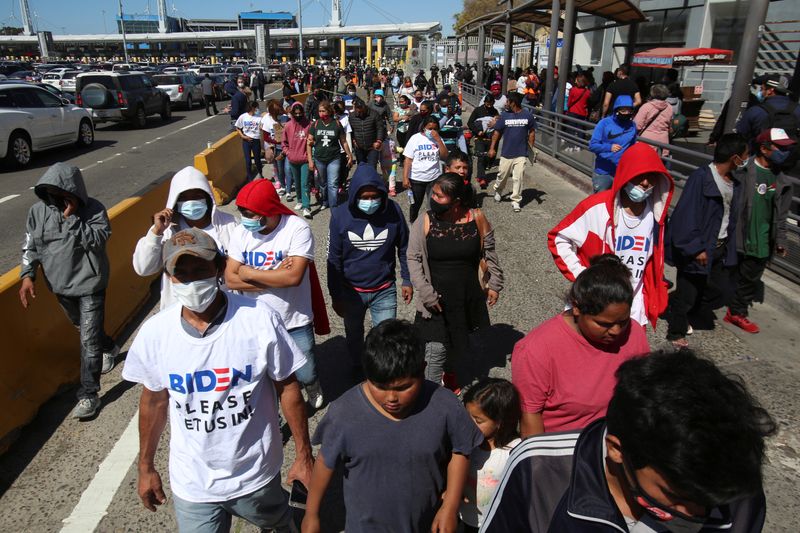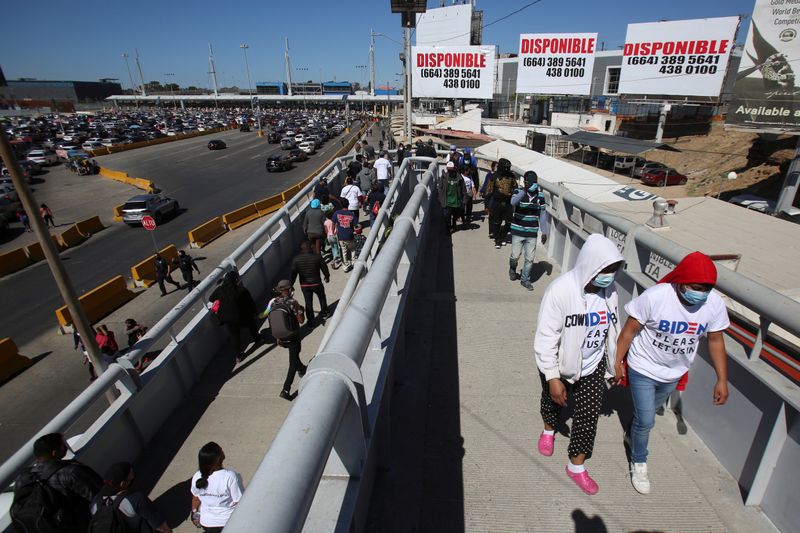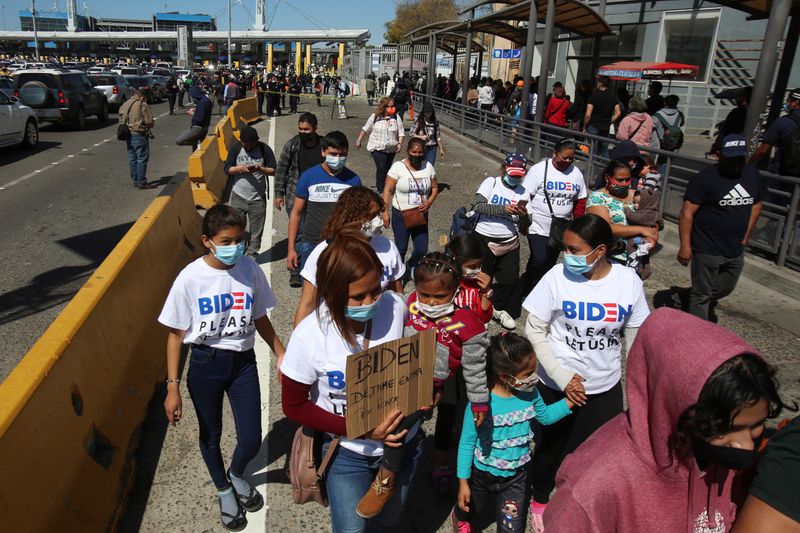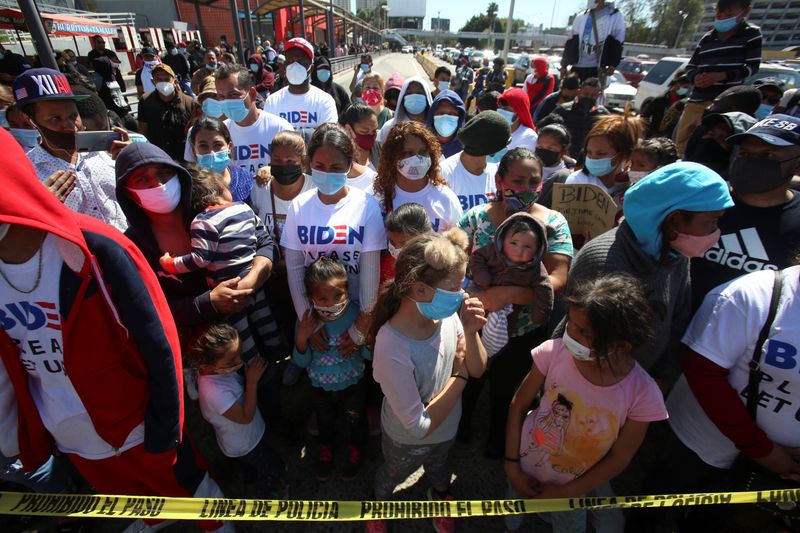MEXICO CITY (Reuters) – Mexico’s government is worried the new U.S. administration’s asylum policies are stoking illegal immigration and creating business for organized crime, according to officials and internal assessments seen by Reuters.
Ever since President Joe Biden won the White House vowing to undo the hardline approach of his predecessor Donald Trump, Mexico has both looked forward to an end to migration burdens imposed by Trump, and braced for a new influx of people.
Detentions on the U.S border have surged since Biden took office on Jan. 20. Mexico has urged Washington to help stem the flow by providing development aid to Central America, from where most migrants come, driven by a humanitarian crisis.
“They see him as the migrant president, and so many feel they’re going to reach the United States,” Mexican President Andres Manuel Lopez Obrador said of Biden the morning after a virtual meeting with his U.S. counterpart on March 1.
“We need to work together to regulate the flow, because this business can’t be tackled from one day to the next.”
Previously unreported details in the internal assessments, based on testimonies and intelligence gathering, state that gangs are diversifying methods of smuggling and winning clients as they eye U.S. measures that will “incentivize migration.”
Apprehensions on the U.S.-Mexico border in February hit levels unseen since mid-2019, and were the highest for that month in 15 years, data reported by Reuters showed.
Among U.S. steps Mexico worries are encouraging migration are improved support for victims of gangs and violence, streamlining of the legalization process, and suspension of Trump-era accords that deported people to Central America.
Recent Mexican policies are also encouraging migration, according to one assessment. It saw potential fillips in measures such as offering COVID-19 vaccines to migrants, as well as better protections for undocumented children.
One Mexican official familiar with migration developments, who spoke on condition of anonymity, said organized crime began changing its modus operandi “from the day Biden took office” and now exhibited “unprecedented” levels of sophistication.
That includes briefing clients on the latest immigration rules, using technology to outfox authorities, and disguising smuggling operations as travel agencies, assessments showed.
“Migrants have become a commodity,” the official said, arguing they were now as valuable as drugs for the gangs. “But if a packet of drugs is lost in the sea, it’s gone. If migrants are lost, it’s human beings we’re talking about.”
Mexico’s security ministry, foreign ministry and national migration institute did not reply to requests for comment for this story. The White House and the Department of Homeland Security did not immediately respond to requests for comment.
Higher concentrations of migrants in border areas have encouraged gangs to recruit some as drug mules, and kidnap others for money, said Cesar Peniche, attorney general of Chihuahua, the state with the longest stretch of U.S. frontier.
Both Mexican and U.S. policy should be more clear-cut so as not to spur illegal immigration, he told Reuters.
Mexico has praised Biden for offering a pathway to citizenship to millions of U.S. residents of Mexican origin, and for rolling back Trump-era policies that sent U.S. asylum seekers back into Mexico to await their court hearings.
SOCIAL MEDIA
To avoid detection, migrants now often travel in small groups instead of caravans, and increasingly follow more dangerous, less well-trodden routes, the Mexican official said.
Communicating via social media such as Facebook, WhatsApp, Instagram and YouTube, smugglers update migrants on impending checkpoints, when freight trains they can jump on pass, where to stay and how to navigate immigration laws, the official added.
To ease their passage, smugglers advise Central American clients to register complaints with authorities saying they have been victims of extortion or, for young men, that they have faced death threats from street gangs, the assessments show.
And, as in previous years, migrants are being told to bring along children to make it easier to apply for asylum.
Mexican intelligence shows smugglers’ transit costs vary widely. One assessment said an unaccompanied Central American minor could secure passage to the U.S. border for about $3,250. By contrast, for African travelers, the rate was $20,000. Asians must also pay more.
One evaluation set out concerns there could be a significant influx in migrants from outside the region – the Caribbean, Asia, Africa and the Middle East – as coronavirus-led border restrictions begin easing.
Even as Mexicans hail Biden’s cancellation of work on Trump’s border wall, some officials say it is time Mexico returns to an idea the government raised in 2019: improving the infrastructure along its own southern border with Guatemala.
“Mexico spends more on every new wave of migrants than that would cost,” said another official. “We have to do it.”
(Reporting by Dave Graham; Additional reporting by Sofia Menchu in Guatemala City and Alexandra Alper in Washington; Editing by Rosalba O’Brien)





















